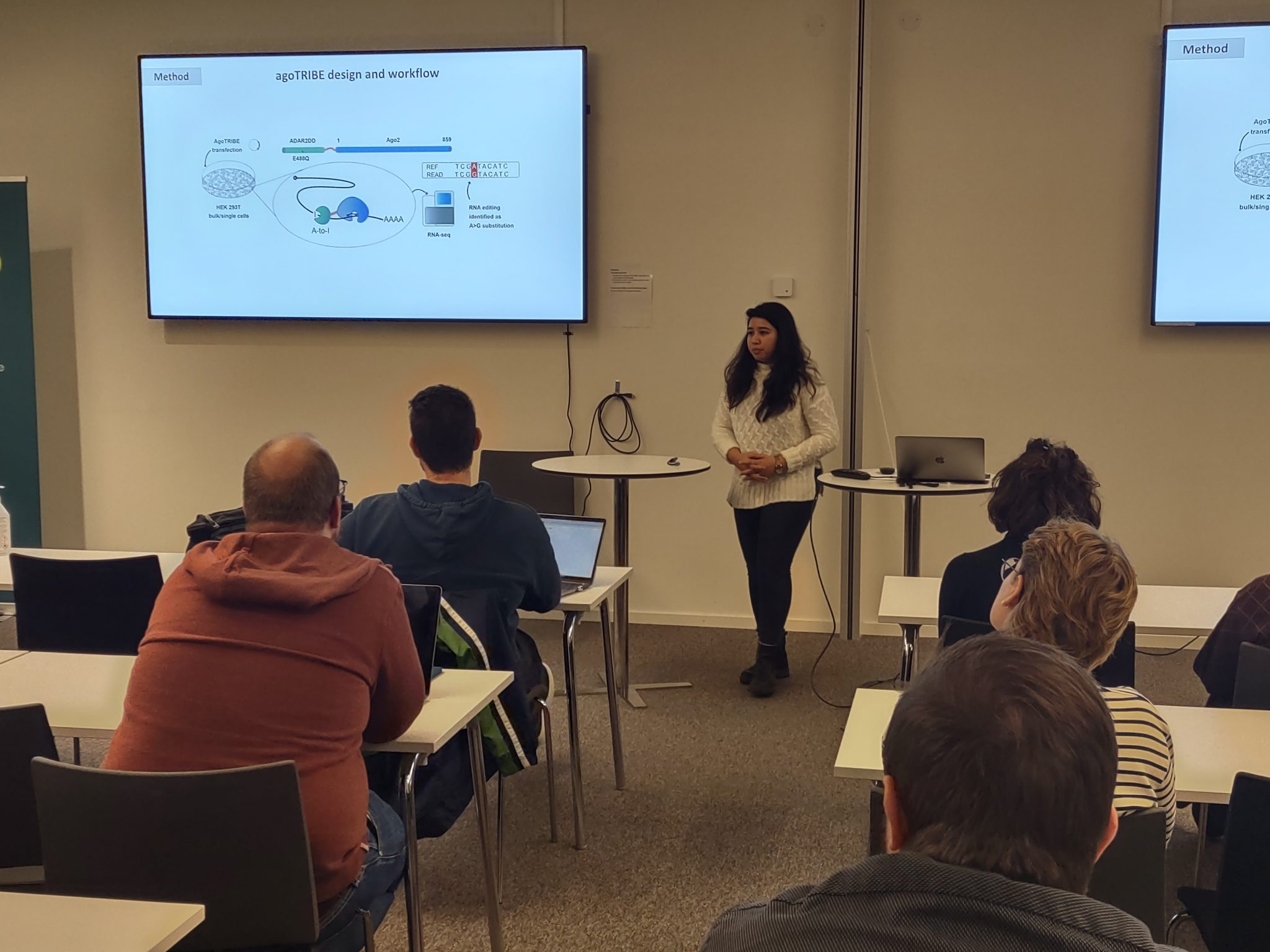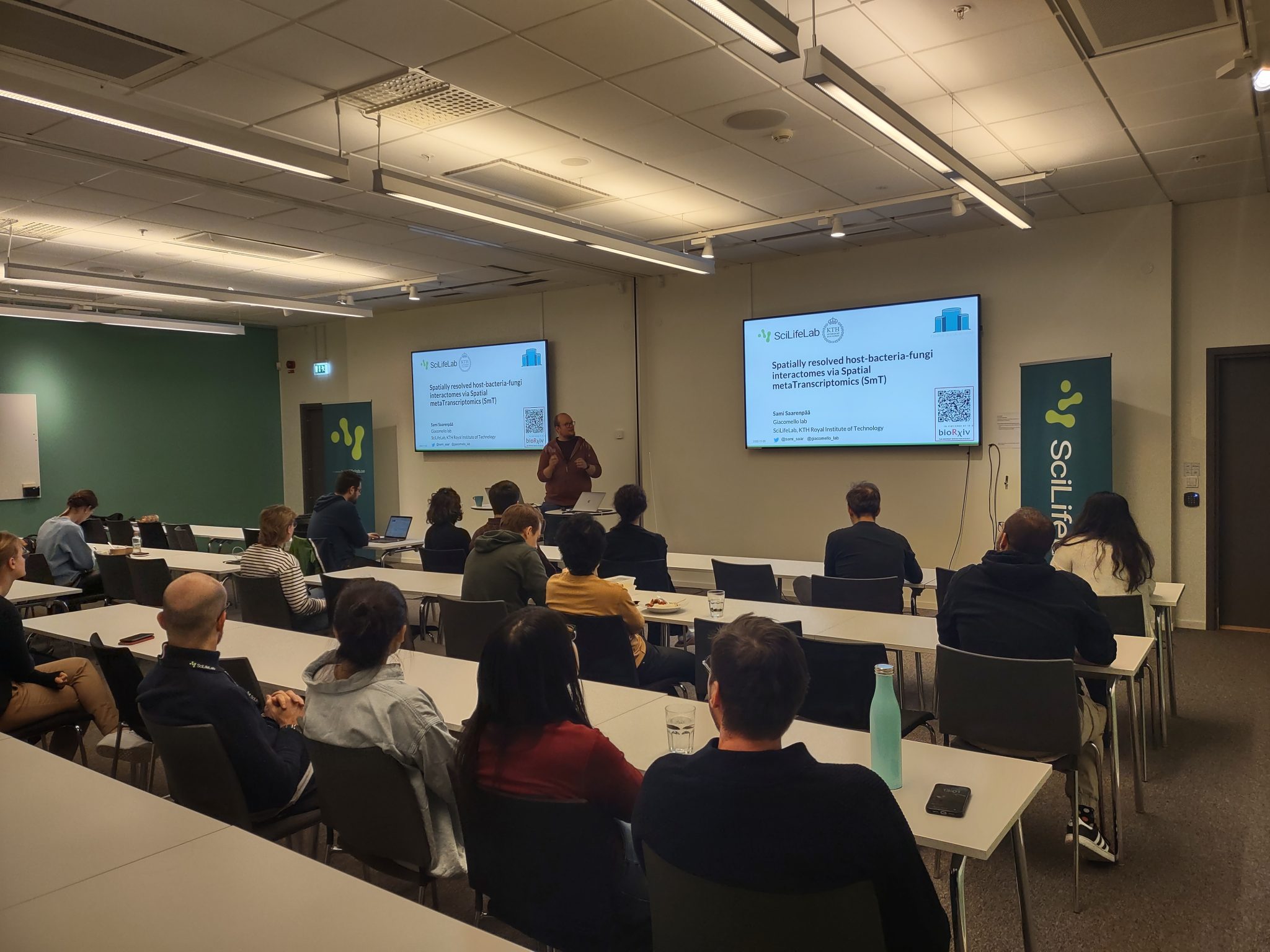Uppsala PhD&Postdoc seminars: Simone Fouché & Jana Immenschuh
October 26 @ 11:00 – 11:50 CEST
Welcome to the very first SciLifeLab Uppsala PhD&Postdoc seminars!
We are very happy to host exciting talks by PhD students and Postdocs from a great variety of fields within SciLifeLab.
The seminars will take place every Tuesday from 11:00 to 11:50
For this very first occasion the seminars will be:
Towards unravelling the mystery of germline-restricted chromosomes
Simone Fouché, Postdoc at the Suh Group, Dept. of Organismal Biology – Systematic Biology
Mapping and characterization of aromatase gene expression in the male and female young adult rat brain
Jana Immenschuh, PhD student at the Neuropsychopharmacology Group, Dept. of Neuroscience
Abstracts
Title:
Towards unravelling the mystery of germline-restricted chromosomes
Summary:
Not all cells in eukaryotic organisms contain the same genome, but rather programmed DNA elimination occurs extensively across the Tree of Life, whereby fragments of the genome or entire chromosomes are removed during germline-soma differentiation. In zebra finch, a massive chromosome, the germline-restricted chromosome (GRC) is present in the germline and absent in the soma. Cytogenetic data suggest GRCs are widely distributed among songbirds. Despite the wide occurrence of programmed DNA elimination, the mechanisms of programmed DNA elimination, the function and the evolutionary significance of the phenomenon, are poorly understood. At present we are working on a reference assembly for the GRC in zebra finch in order to shed some light on the emergence and evolution of this enigmatic chromosome. Specifically we would like show whether: 1. Whether the GRC is always maternally inherited? 2. What is the population level variation and are some regions maintained by selection? 3. Which regions of the genome are more likely to be copied to the GRC, regions with functions related to development or highly recombining regions of regular chromosomes?
Title:
Mapping and characterization of aromatase gene expression in the male and female young adult rat brain
Summary:
The enzyme aromatase (Cyp19a1 gene) catalyzes the biosynthesis of estrogens from androgens. Besides several peripheral tissues, it is expressed in specific brain regions that are of relevance to emotional and cognitive functions in mammalian species, including rats and humans. Of interest, aromatase seems to be involved in non-reproductive functions in the brain, such as regulation of neurogenesis, synaptic transmission and neuroprotection and might be expressed in a sex-dependent manner. Investigation of its expression throughout the brain has shown to be outdated and imprecise, and is lacking the identification of sub regions with known sexual dimorphisms or functions related to sex differences in both males and females. Additionally, little is known about the identity of the neurons expressing aromatase. The present study sought to map the expression pattern of Cyp19a1 throughout the brain of young adult rats of both sexes and elucidate sex differences, as well as characterize in an exploratory fashion the cell types expressing this gene.
The findings will advance the knowledge on aromatase and its role in the brain. As gonadal hormones affect the brain as well as mental health in a profound manner, this study might shed light on some of the underlying molecular underpinnings.


